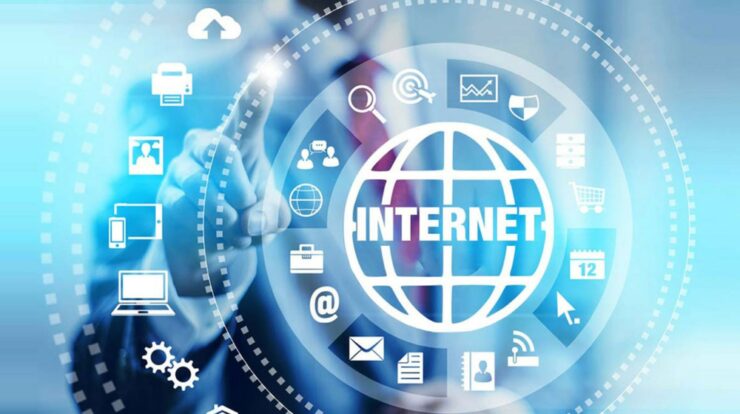
Internet Service is a connection provided by an ISP (Internet Service Provider) that allows you to access the internet and browse the World Wide Web. You’ll need a modem or router to access the internet that talks with your ISP. The other piece of equipment, known as a modem, converts the signal from your ISP into information that can be read by devices such as your laptop or phone. Finally, the modem converts the signal into data sent to your computer.
What Is The Definition Of An Internet Service Provider?
An online service provider (ISP) is a corporation that provides hardware and services such as telephone lines to clients to access the web through telephone lines. An ISP might be a small business like a cable provider or a major corporation. Internet Service Providers, or ISPs, are businesses that offer clients online access and related services. These businesses would be classified as dial-up or broadband. Dial-up is sluggish because the connection between the computer and the ISP uses an outdated telephone line. Broadband is quicker because it employs high-speed modem devices that send and receive data over cable lines, digital subscriber lines (DSLs), or Wi-Fi networks.
How Does Internet Service Function?
You will be assigned an IP address when you sign up for internet service through your ISP. This IP address functions similarly to a computer’s address. Every IP address was assigned a name when these addresses were created. Your ISP will provide a unique name to your computer based on the amount assigned to it, such as 123.123.123.123. This is referred to as a static IP address. You may be able to access the web at any time throughout 24 hours. On the other hand, certain websites demand more than one request for advice. This typically implies that your computer will have to search for that website. This is when dynamic IP addresses come in handy. When you use a dynamic IP address, your computer will find a new IP address every two hours as long as the connection is active.
Isn’t it simple to access the web from home? Connect your computer to a modem, access an IP address, and you’re ready to go online! Unfortunately, the approach is quite difficult and intricate. Several online services are available for people like me and you to choose from. Unfortunately, this specifies how much bandwidth each will consume. To make matters worse, you may be unaware of how much bandwidth you consume. This is due to the information that ISPs are obligated by law to disclose to their clients how much data their online service consumes every month. This advice will be sent to you on paper or electronically by your ISP.
The pricing and pace of ISP internet service vary. Slower Internet support will pay you extra. On the other hand, the cost of slower internet service may be significantly more affordable than you think. Many people believe quicker internet service is better or more affordable, while it is not. Several slow rates are available, and some can be faster than others, but ISPs would not tell you the difference. This is primarily because slower speeds suit clients who want to do the most basic online browsing. In addition, the minimum expenses required to run a line and provide quick service are similar.
With all of that stated, there is no reason why you cannot pick the best one for you. Contact your ISP first if you are considering purchasing a modem or other internet-related items for your PC. Whatever the case, finding and making your ISP’s data usage objective is the best way to ensure a rapid and dependable online connection. When you’re thinking about buying or leasing a modem, ask your ISP about their data use policy. This will allow you to determine the service they give so that you may continue to use them in the future. You should also ensure that your web service speeds are within the legal limitations.

